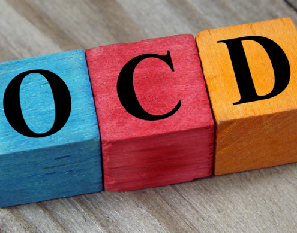Does My Child Have Obsessive-Compulsive Disorder?
Does My Child Have Obsessive-Compulsive Disorder?

Sometimes parents who seek consultation with me about their child’s worries or fears are surprised to learn that the child has Obsessive-Compulsive Disorder (OCD).
“But she doesn’t wash her hands all the time…”
Or they do not realize that certain symptoms are part of OCD.
“He had bad thoughts that bothered him. He used to tell us about all the time. To get away from that, he developed OCD and started worrying about germs.”
The information that’s out there about OCD can be confusing to navigate, so how is a parent to know if their child is showing signs of OCD? For starters, OCD involves repetitive unwanted thoughts, images, or urges – about any topic imaginable. The key is that these create a great deal of anxiety and/or discomfort. These are the obsessions. A child with OCD gets caught up in an ongoing cycle of trying to rid themselves of that discomfort. Those attempts to feel “better” are compulsions. When obsessions and compulsions get in the way of a child participating in social, school, or family activities it is a disorder.
Let’s bring it all together. What does it look like? For starters, a parent might notice their child being bothered or upset by certain thoughts or even words (e.g., “Mom, my brain keeps saying that you’re ugly. It won’t stop.”). Some kids might repeatedly confess seemingly benign things (e.g., "I'm afraid I might've bumped into someone in class today," "I might've looked at my friend with a mean face."), and look to their parents for reassurance that it’s okay. Other children will repeatedly share fears of getting sick or contaminated, and will be caught up in attempts to prevent this (i.e., by washing, sanitizing, or avoiding certain places or items). Still other children may have worries about people dying or bad things happening. They may beg parents for reassurance that it won’t happen, say special prayers repeatedly, or require parents to engage in elaborate bedtime or goodbye routines (i.e., “You have to say, ‘Goodnight, I love you, bless you, amen!’ No, not that way!”). Sometimes they focus on things needing to be "just right," such as needing to touch things in a certain order or organizing their toys in a particular way that must not be disturbed.
So, what’s the problem with all this? Won’t it all pass? Besides the obvious result of parents becoming exhausted and frustrated by their child’s confessing, demands for reassurance or participation in routines, and unrelenting string of worries, the child gets stuck. They never learn that they can actually handle their fears and worries and that their compulsions just grow the problem. Sure, sometimes the phase passes, but a new one will pop up in due time, leading to a string of OCD cycles. Children who get caught up in these can miss out on important parts of being a kid. Because they are distracted by what’s going on in their minds, they can struggle to engage socially or miss out on what’s going on in the classroom. The entire family can be impacted when a child's OCD flares up, as rituals and related emotional outbursts can interfere with family activities (like going to the park or even eating a meal together).OCD symptoms frequently begin to be seen between ages 8-12, but can also be seen younger. If you suspect your child has OCD, get informed with good information from reputable sources. You might ask your child’s pediatrician about specialists in your area. Not all therapies are created equal when it comes to OCD and some treatments can make things worse, so it is important to identify a provider who has the right training. The Anxiety and Depression Association of America and the International OCD Foundation are excellent places to learn about OCD, about how it is treated, and about how to find a trained specialist who can evaluate and treat it. The sooner you and your child learn the in’s and out’s of OCD, the sooner you can both be on the way to a healthier lifestyle!












